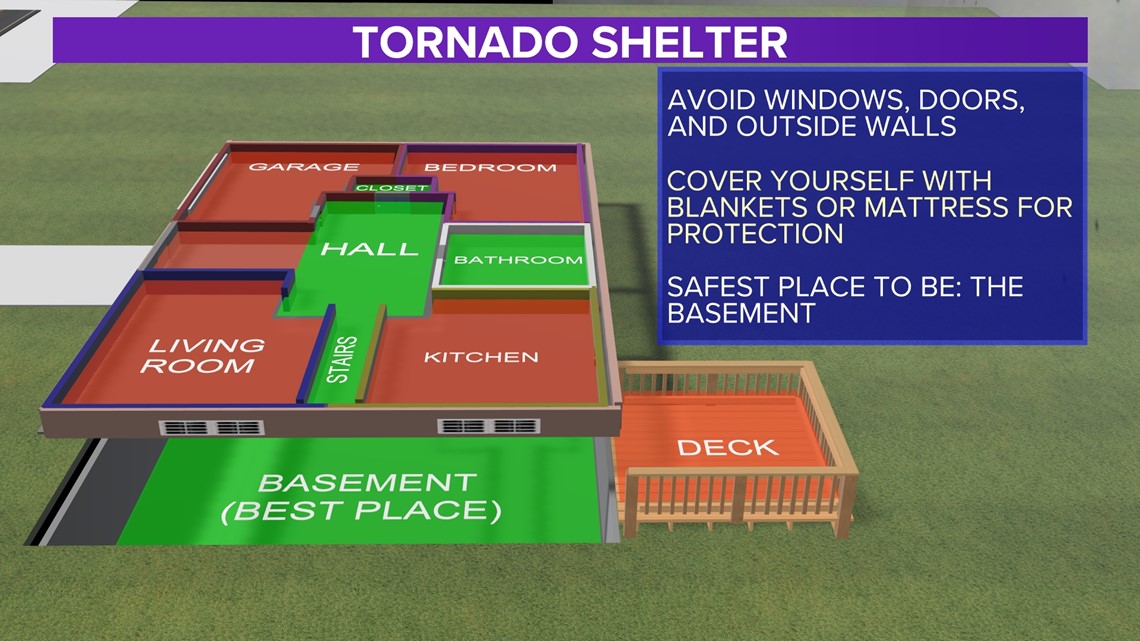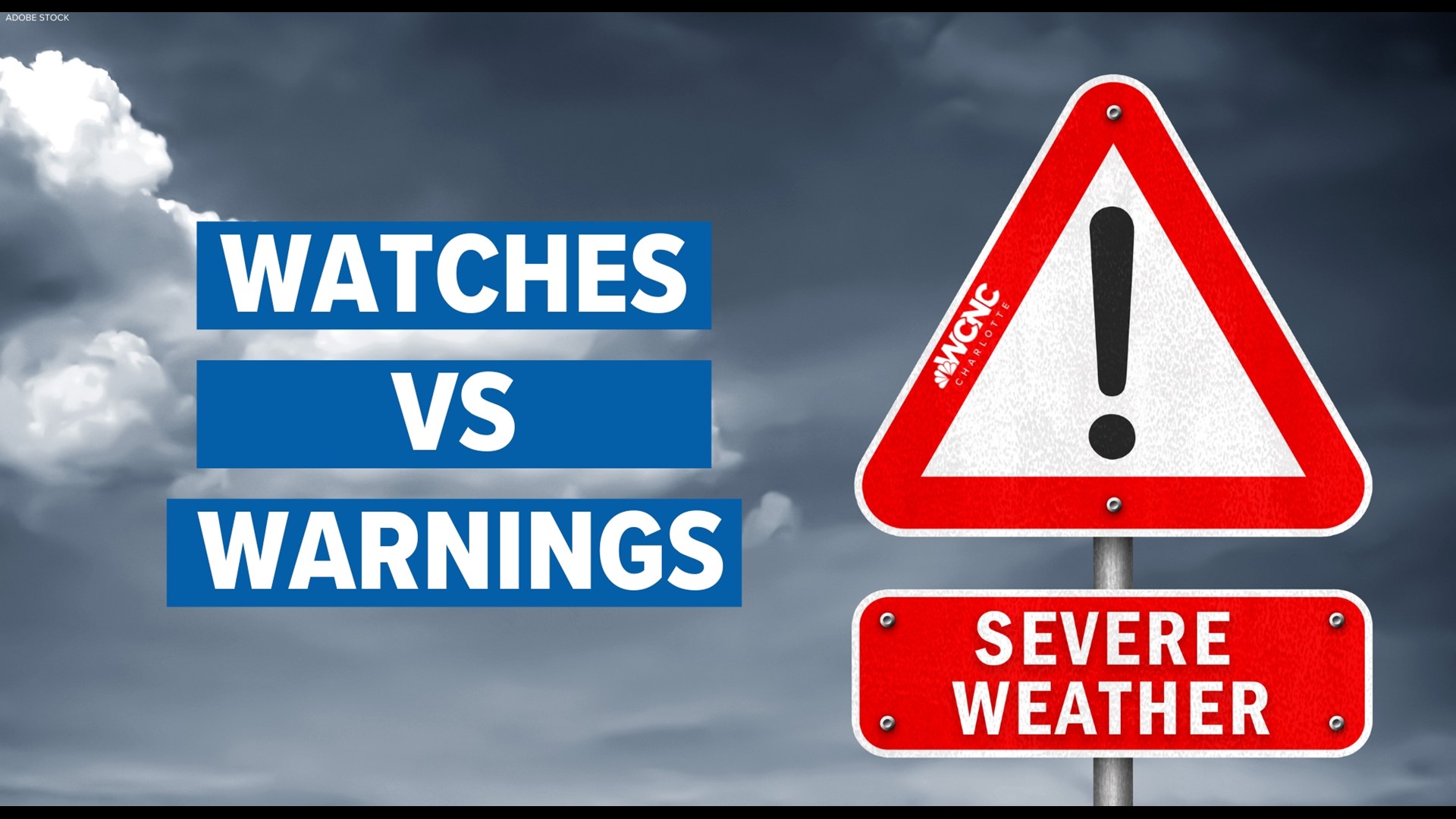CHARLOTTE, N.C. — When a severe weather warning is issued by the National Weather Service, it's time for you to take immediate action to protect yourself and others. In many sceneries, you'll know hours in advance to monitor for the chance of storms because a severe weather watch will be issued.
Who issues these alerts?
Only the National Weather Service, a federal government agency under the justification of the National Oceanic and Atmospheric Administration and the U.S. Department of Commerce, has the authority to issue severe weather alerts.
Alerts are then distributed both by the National Weather Service, through services such as NOAA weather radios, and by broadcast partners, such as WCNC Charlotte.
While the National Weather Service does not have a mobile app, you can receive alerts to your phone via a Wireless Emergency Alert and apps such as the WCNC Charlotte app.
What is a Severe Thunderstorm Warning:
The National Weather Service will issue a Severe Thunderstorm Warning for a thunderstorm that:
- Has 1” diameter hail, which is the equivalent or greater than the size of a quarter
- 58 mph winds
When a Severe Thunderstorm Warning is issued, you should seek immediate shelter to protect yourself from dangerous hail or wind.
It is also likely the storm is producing dangerous lightning. However, lightning is not a requirement required to issue a Severe Thunderstorm Warning. Therefore it is still possible to have dangerous lightning in a storm that has not yet been warned. Anytime you hear thunderstorms, regardless of active warnings, you should seek shelter immediately.
What is a Severe Thunderstorm Watch:
In the hours immediately proceeding the chance for severe thunderstorms, the National Weather Service will issue a Severe Thunderstorm Watch to indicate the possibility of storms soon.
When a watch is issued, you do not need to seek immediate shelter. However, now is the time to prepare. Preparations may include changing your plans for later, staying connected to the changing weather conditions (by having at least two ways to receive severe weather alerts), and preparing your property, such as securing loose outdoor furniture and moving the car to the garage.
What is a Tornado Warning:
The National Weather Service will issue a Tornado Warning when a severe thunderstorm is producing, or is likely to produce, a tornado.
Within a matter of minutes, a tornado can deliver devastating winds and leave a trail of destruction. By definition, a tornado is a violently rotating column of air extending from a thunderstorm down to the ground.
When a Tornado Warning is issued, you should seek immediate shelter. Whether at home, work, school, or other locations, seek shelter inside the most interior room located on the lowest level of a sturdy structure.


What is a Tornado Watch:
In the hours immediately proceeding the chance for tornadoes, the National Weather Service will issue a Tornado Warch.
When a watch is issued, you do not need to seek immediate shelter. However, now is the time to prepare. Preparations may include changing your plans for later, staying connected to the changing weather conditions (by having at least two ways to receive severe weather alerts), and preparing your property, such as securing loose outdoor furniture and moving the car to the garage.
A Tornado Watch should also be an indication that in addition to tornadoes, there is also a chance for the severe thunderstorms needed to produce a tornado. Therefore in addition to a risk of tornadoes, a Tornado Watch should also be an indication that dangerous winds, hail, and lightning are also possible.
The Carolina severe weather season
On average, North Carolina has about 30 tornadoes per year. While most tornadoes occur between March through May, tornadoes are possible any time of year.
Severe Weather Preparedness Stories:

